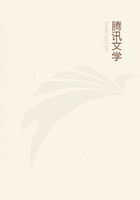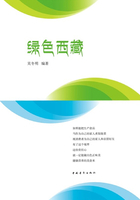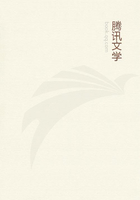We may add, that he, who is easily touched with compassion, and is moved by another's sorrow or tears, often does something which he afterwards regrets; partly because we can never be sure that an action caused by emotion is good, partly because we are easily deceived by false tears. I am in this place expressly speaking of a man living under the guidance of reason. He who is moved to help others neither by reason nor by compassion, is rightly styled inhuman, for (III: xxvii.) he seems unlike a man.
Prop. LI. Approval is not repugnant to reason, but can agree therewith and arise therefrom.
Proof.- Approval is love towards one who has done good to another (Def. of the Emotions:xix.); therefore it may be referred to the mind, in so far as the latter is active (III:lix.), that is (III:iii.), in so far as it - understands; therefore, it is in agreement with reason, &c. Q.E.D.
Another Proof.- He, who lives under the guidance of reason, desires for others the good which he seeks for himself (IV:xxxvii.); wherefore from seeing someone doing good to his fellow his own endeavour to do good is aided; in other words, he will feel pleasure (III:xi.Note) accompanied by the idea of the benefactor. Therefore he approves of him. Q.E.D.
Note.- Indignation as we defined it (Def. of the Emotions:xx.) is necessarily evil (IV:xlv.); we may, however, remark that, when the sovereign power for the sake of preserving peace punishes a citizen who has injured another, it should not be said to be indignant with the criminal, for it is not incited by hatred to ruin him, it is led by a sense of duty to punish him.
Prop. LII. Self-approval may arise from reason, and that which arises from reason is the highest possible.
Proof.- Self-approval is pleasure arising from a man's contemplation of himself and his own power of action (Def. of the Emotions:xxv.). But a man's true power of action - or virtue is reason herself (III:iii.), as the said man clearly and distinctly contemplates her (II:xl., II:xliii.); therefore self-approval arises from reason. Again, when a man is contemplating himself, he only perceived clearly and distinctly or adequately, such things as follow from his power of action (III:Def.ii.), that is (III:iii.), from his power of understanding; therefore in such contemplation alone does the highest possible self-approval arise. Q.E.D.
Note.- Self-approval is in reality the highest object for which we can hope.
For (as we showed in IV:xxv.) no one endeavours to preserve his being for the sake of any ulterior object, and, as this approval is more and more fostered and strengthened by praise (III:liii.Coroll.), and on the contrary (III:lv.Coroll.) is more and more disturbed by blame, fame becomes the most powerful of incitements to action, and life under disgrace is almost unendurable.
Prop. LIII. Humility is not a virtue, or does not arise from reason.
Proof.- Humility is pain arising from a man's contemplation of his own infirmities (Def. of the Emotions:xxvi.). But, in so far as a man knows himself by true reason, he is assumed to understand his essence, that is, his power (III:vii.). Wherefore, if a man in self-contemplation perceives any infirmity in himself, it is not by virtue of his understanding himself, but (III:lv.) by virtue of his power of activity being checked. But, if we assume that a man perceives his own infirmity by virtue of understanding something stronger than himself, by the knowledge of which he determines his own power of activity, this is the same as saying that we conceive that a man understands himself distinctly (IV:xxvi.), because (Land reads: "Quod ipsius agendi potentia juvatur"- which I have translated above. He - suggests as alternative readings to `quod', 'quo' (= whereby) and 'quodque' (= and that).) his power of activity is aided. Wherefore humility, or the pain which arises from a man's contemplation of his own infirmity, does not arise from the contemplation or reason, and is not a virtue but a passion. Q.E.D.
Prop. LIV. Repentance is not a virtue, or does not arise from reason; but he who repents of an action is doubly wretched or infirm.
Proof.- The first part of this proposition is proved like the foregoing one. The second part is proved from the mere definition of the emotion in question (Def. of the Emotions:xxvii.). For the man allows himself to be overcome, first, by evil desires; secondly, by pain.
Note.- As men seldom live under the guidance of reason, these two emotions, namely, Humility and Repentance, as also Hope and Fear, bring more good than harm; hence, as we must sin, we had better sin in that direction.
For, if all men who are a prey to emotion were all equally proud, they would shrink from nothing, and would fear nothing; how then could they be joined and linked together in bonds of union? The crowd plays the tyrant, when it is not in fear; hence we need not wonder that the prophets, who consulted the good, not of a few, but of all, so strenuously commended Humility, Repentance, and Reverence. Indeed those who are a prey to these emotions may be led much more easily than others to live under the guidance of reason, that is, to become free and to enjoy the life of the blessed.
Prop. LV. Extreme pride or dejection indicates extreme ignorance of self.
Proof.- This is evident from Def. of the Emotions:xxviii. and xxix.
Prop. LVI. Extreme pride or dejection indicates extreme infirmity of spirit.
Proof.- The first foundation of virtue is self-preservation (IV:xxii.Coroll.) under the guidance of reason (IV:xxiv.). He, therefore, who is ignorant of himself, is ignorant of the foundation of all virtues, and consequently of all virtues. Again, to act virtuously is merely to act under the guidance of reason (IV:xxiv.): now he, that acts under the guidance of reason, must necessarily know that he so acts (III:xliii.).


